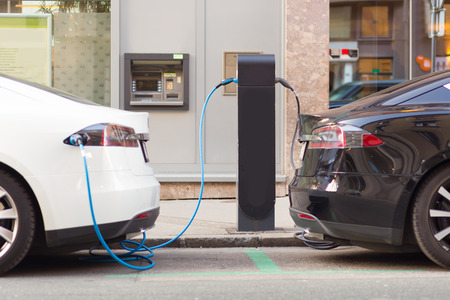NHTSA Sets “Quiet Car” Safety Standard to Protect Pedestrians
December 7, 2016 | Category: Automobile Accidents | ShareFuel is saved and emissions are cut when vehicles run on electric power. This might be welcome news to some people, but not all. The growing use of hybrid and electric vehicles causes concern for pedestrians and cyclists because vehicles that run by electric power are difficult for them to hear.
The Problem
 With estimates of half a million electric vehicles being on the road in the United States by 2030 and with these vehicles being mostly silent at speeds up to about 25 miles per hour, pedestrians and cyclists have every right to be concerned.
With estimates of half a million electric vehicles being on the road in the United States by 2030 and with these vehicles being mostly silent at speeds up to about 25 miles per hour, pedestrians and cyclists have every right to be concerned.
The NHTSA (National Highway Traffic Safety Administration) authorized a study conducted in 12 states. The study showed a 50 percent higher rate of accidents involving pedestrians and hybrids than for standard internal combustion vehicles.
The Potential Solution
The National Federation of the Blind commented November 14, 2016 on the issuance of regulations by the NHTSA to implement the Pedestrian Safety Enhancement Act of 2010, which was passed by Congress and signed by President Obama to protect the blind and other pedestrians from the dangers posed by silent hybrid and electric vehicles.
Although the law was enacted in 2011, NHTSA extended the deadline a few times to accommodate comments from auto manufacturers and other groups.
The Pedestrian Safety Enhancement Act of 2010 proposed to establish a Federal motor safety standard setting minimum sound requirements for hybrid and electric vehicles. This standard will ensure that blind, visually-impaired, and other pedestrians are able to detect and recognize nearby hybrid and electric vehicles by requiring hybrid and electric vehicles to emit sound that pedestrians would be able to hear in a range of ambient environments and contain acoustic signal content that pedestrians will recognize as being emitted from a vehicle.
Under the new rule, the NHTSA is requiring all hybrid and electric vehicles with four wheels and a gross vehicle weight rating 10,000 pounds or under to be equipped with a device, or be designed, to produce a sound when traveling forward or in reverse up to 19 miles per hour. The sound would help to alert visually-impaired pedestrians and cyclists. At higher speeds, the sound alert will not be required as other factors such as tire and wind noise provide adequate warning to pedestrians.
According to NHTSA, the initial compliance will be phased in by requiring 50 percent of each manufacturer’s hybrid vehicle and electric vehicle production to comply by September 1, 2018 and full compliance will be required by September 1, 2019. Vehicles would have to emit sound-meeting minimum requirements in eight one-third octave bands that allows blind and other pedestrians to reasonably detect the presence, direction, location and operation of a nearby hybrid or electric vehicle.
“Since hybrid and electric vehicles are not fully compliant at the present time, owners of these vehicles should drive carefully at all times, especially around pedestrians and cyclists,” said Fort Myers Vehicle Accident Attorney, Randall Spivey of Spivey Law Firm, Personal Injury Attorneys, P.A.
Fort Myers Personal Injury Attorney,Randall L. Spivey is a Board Certified Civil Trial Attorney – the highest recognition for competence bestowed by the Florida Bar and a distinction earned by just 1 percent of Florida attorneys. He has handled over 2,000 personal injury and wrongful death cases throughout Florida. For a free and confidential consultation to discuss your legal rights, contact the Spivey Law Firm, Personal Injury Attorneys, P.A., in Lee County at 239. 337.7483 or toll free at 1.888.477.4839, or by email to Randall@SpiveyLaw.com. Visit SpiveyLaw.com for more information. You can contact Spivey Law Firm, Personal Injury Attorneys, P.A. in Charlotte County at 941.764.7748 and in Collier County 239.793.7748.

